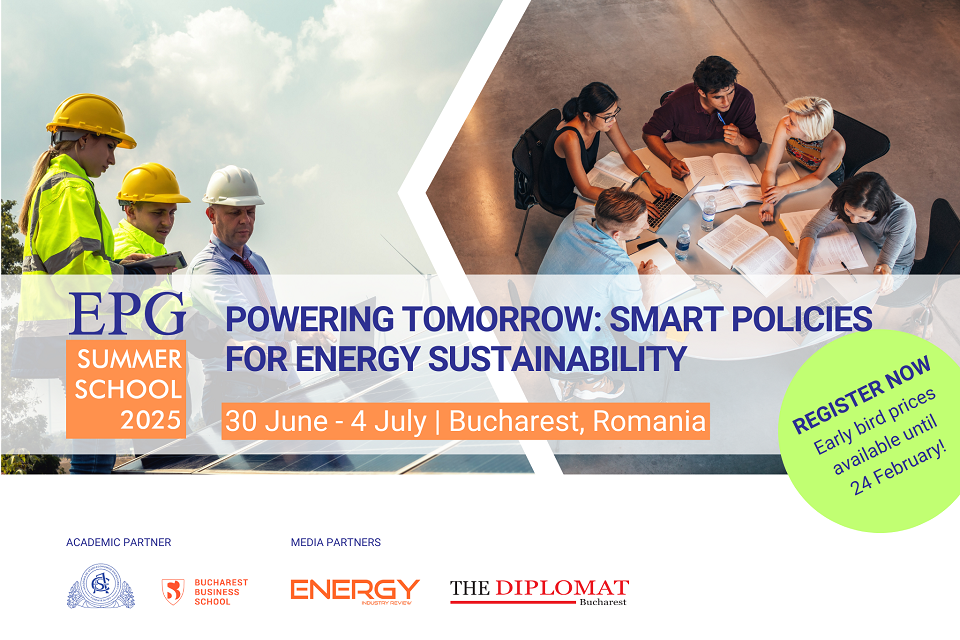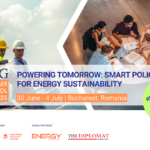EPG Summer School Opens its Doors for the Eighth Edition

Registration is now open for students and young professionals around the world who wish to gain insight into energy and climate policy from top-tier experts.
The EPG Summer School 2025: Powering Tomorrow: Smart Policies for Energy Sustainability will take place from 30 June to 4 July in Bucharest and Constanța.
A unique programme in Romania, the EPG Summer School offers insights into the challenges faced by today’s energy sector and the impacts of different prospective solutions. Through seminars and lectures, more than 15 speakers – including reputed scholars, international experts, and practitioners from leading energy companies – will explore critical questions on smart policies for energy sustainability.
Who can register? The summer school is aimed at 20-25 master’s/PhD students and young professionals (aged up to 35) studying or working in the energy sector or related fields such as economics, law, political science, environmental studies, international relations, and social sciences.
As many of the summer school topics will be approached from a policy perspective, ideal candidates include employees of international organisations, public affairs professionals in business organisations, policy advocates from NGOs, and researchers at universities, research institutes, and think tanks, among others.
Why should you join the Summer School? The programme’s goal is to equip students and professionals with the tools needed to better analyse the energy sector and its complex interconnections with the climate system and natural resource industries. The summer school also offers a fantastic opportunity to debate, interact, and build a sense of community that can later facilitate cross-disciplinary and cross-border collaboration to achieve energy transition goals.
Bogdan Leu, EPG Summer School Director, said: “We have seen over the years that the purpose of the EPG Summer School is twofold. Firstly, it serves as an intensive and interactive knowledge transfer platform, bringing together top-tier international experts in Bucharest with our participants, who are eager to learn and debate. Secondly, participants have the chance to bond over five days of workshops and field trips, thus forming a community of skilled individuals with a passion for improving the climate and energy policy landscape. Through this programme, EPG is helping to shape the experts of tomorrow, aiming to make them not only highly knowledgeable but also well-connected across different fields.”
More information, as well as the registration form for the EPG Summer School 2025, can be found on the EPG website. Registration is open until 10 March. Early Bird spots are available until 24 February.
2000














